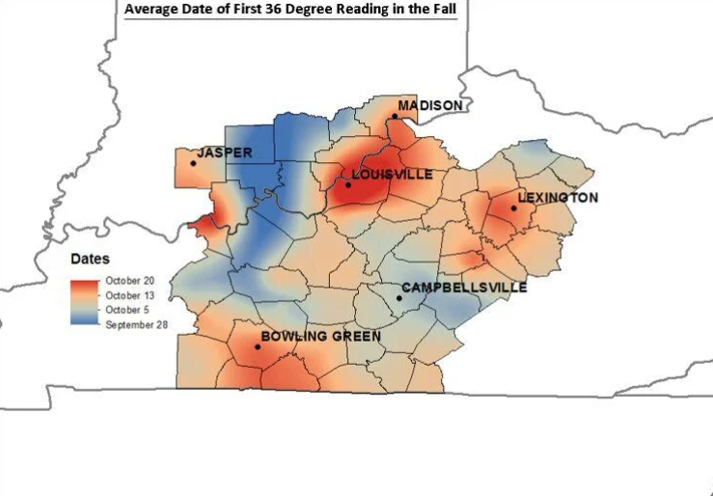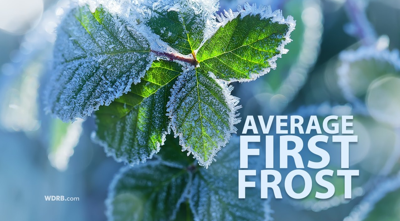Temperatures this weekend certainly won't have that fall feel with highs in the mid 80's. Meteorological fall is defined as the months of September, October and November. Why do meteorological and astronomical seasons begin and end on different dates? In short, it’s because the astronomical seasons are based on the position of Earth in relation to the sun, whereas the meteorological seasons are based on the annual temperature cycle. Since we are now into fall and temperatures cool down a little next week, we wanted to let you know when we typically experience our first frost/freeze. It's important to note that these statistics are for the city of Louisville. Rural areas may have significantly different statistics, even within Jefferson County. The average date of the first 36 degree reading (Frost) in Louisville is October 20th...

Image Courtesy: NWS
The average date of the first 32 degree reading (Freeze) in Louisville is November 1st...

Image Courtesy: NWS
The average date of the first 28 degree reading (Hard Freeze) in Louisville is November 12th...

Image Courtesy: NWS
Here's a bunch of other stats and records...
Records:
Latest spring frost (36°): May 27, 1961
Latest spring freeze (32°): May 10, 1966
Latest spring hard freeze (28°): April 23, 1986
Earliest final spring frost (36°): March 15, 1884
Earliest final spring freeze (32°): March 5, 1927
Earliest final spring hard freeze (28°): February 12, 2011
Earliest fall frost (36°): September 25, 1950
Earliest fall freeze (32°): October 3, 1974
Earliest fall hard freeze (28°): October 10, 1964
Latest first fall frost (36°): November 23, 1902
Latest first fall freeze (32°): December 5, 1885
Latest first fall hard freeze (28°): December 13, 1939
Longest growing season: 257 days in 1884
Shortest growing season: 166 days in 1976














